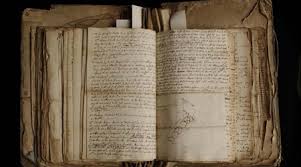Russian Literature in Kazakhstan
Russian Literature in Kazakhstan
It has been a long time since caravans and trains brought people of various nationalities to to the Kazakh Land, where they have been living the life of one nation. Wandering in desert sand like the Kazakhs used to do, their throats parched with thirst, they had to escape to China, failed to reach Afghanistan… They were forced to leave their homes by a political order, which appeared within one night to send them away, and their spiritual life was the only holder of their ethnic authenticity. It is especially true with literature and arts, for national literature presets the great spirit of the nation.
The powerful and sacred Kazakh land produced such unparalleled literary talents as Pavel Vasilyev, Ivan Shukhov, Ivan Shchegolikhin, Nikolay Korsunov, Valeriy Antonov, Moris Simashko, Yevgeniy Kurdakov, and Nadezhda Chernova. The Department for Russian Literature of the Writers' Union of Kazakhstan was founded in 1933. We would like to shed some light on the lives of those Russian writers who have made significant contributions to the progress of Kazakhstani literature.
Pavel Nikolayevich Vassilyev (1910-1937) was a poet born in South Kazakhstan Region. He fell victim to political repressions. His first poems appeared in 1926. His books of essays included “Exploring Gold” (1930), “People of Taiga” (1931), “Astrakhan Letters”, “The Volga Delta”, and “Aral Sketches”. Vassilyev’s works based on Kazakh stories and novelettes included “The Horsemen”, “Erne Hunt”, and “The Song of Serke” along with “Songs by Kyrgyz Kazakhs” (1932) appeared in a collective translation book. He wrote such poems as “Bal Ashu”, “Ayyrylysu”, “Men, Mukan Bashmetov Bir Kese Kymydzy Simirgende”, “Fortunetelling”, “The Melon Field near Semipalatinsk”, and “The Kuyandy Fair” under a pseudonym of Mukan Bashmetov. Besides, he translated “Arnau” (“Dedication”) and the poem “Dala” (“Steppe”) by I. Dzhasugurov into Russian; he also translated from Tatar, Bashkir, Chuvash, and Tadzhik.
Ivan Shukhov (1906–1977) was born at Presnov Station, present North Kazakhstan Region. His novel “The Bitter Line” appeared as two volumes in 1931. Later, the magazine October published his novel “Hatred”. In 1935, he wrote a novel titled “Motherland”, followed by “Army in the Field.” During the Great Patriotic War, he worked as an editor for Presnov Regional Newspaper. It was at that time that the novelette “Letters to Siberian Cossacks” was published. Starting in 1950s, he wrote continuously – “Conquering Virgin Soil”, “The Gold Mine”, “Everyday Virgin Soil Life”, etc.
Ivan Shchegolikhin was born in Novotroisk, Karabalyk District, Kostanay Region on April 1, 1927. His fist story titled “Professor’s Daughter” appeared in the magazine Sovetskiy Kazakhstan (1954). He translated novels and novelettes by S.Seyfullin, C.Mukanov, G.Mustafin, Kh.Yesenzhanov, A.Sharipov, M.Gabdullin, S.Talzhanov and the Uyghur author Kh.Abdullin, as well as short stories by M.Auezov, T.Akhtanov, Zh.Zhumakhanov, R.Rayymkulov, and T.Nurtazin.
Nikolay Korsunov was born in Krasnoarmeysk, Priuralsk Distrikt, North Kazakhstan Region on December 27, 1927. He wrote a number of essays, pamphlets, and journalistic stories. In 1961, his first novelette appeared as a book titled “A Spring as the Beginning of a River”. Several novelettes, short stories, and novels followed it. He translated articles about the life and works of M. Sholokhov into many languages.
Valeriy Antonov was born in Andijan, Uzbek SSR on April 25, 1933. He translated a number of poetic compilations from Kazakh into Russian. The Zhazushy Publishing House published his books of poems translated into Kazakh in 1978. The author was awarded with several medals. Bibliography: Birthday. Poems. 1956; Intersection. Poems. 1961; Speak to Me, Tell Your Name. Poems. Zhazushy, 1967; Old Cane. Poems. Zhazushy, 1976; The Golden Gate. Poems.Zhazushy,1983.
Moris Simashko (Shamis Moris) (1924–2000) was born in Odessa on March 18. During 1948–1950 and in 1957, his plays “The Far South” and “The Steppe Commissar” (in cooperation with A.Alimzhanov) were staged. Such historical novelettes as “In the Karakum Sand” (1958), “The Temptation of Fraga” (1960), “Khayyam’s Hajj”, “Yemshan”, and the novels “Mazdak” (1968), “Commissar Zhangldin” (1978), “The Bell” (1982), and “Semiramis” were also publish. They made the basis for such films as “The Dash Kala Incident” (1964), “In the Black Sand” (1965), “Sultan Beybars (1989), and “Gu-Ga” (1989).
Yevgeniy Kurdakov was born in Orynbor on March 27, 1940. He is the author of the following poem compilations: “The Girl of Irtysh”, “My Garden in Blossom”, and “The Eternal Coast”. He has written an environmentally themed book titled “Forest and Axe” and the philosophical essay “Floristic Sketches”.
Nadezhda Chernova was born in Bayanaul, Pavlodar Region in 1947. She is a poet and translator. She has translated a book by K.Akhmetova into Russian. The translation has been published. Her poems have been translated into Kazakh, Ukrainian, Yakut, and Bulgarian. In 2008, she won the Alash International Literary Award. Besides, she is a Kurmet Order awardee.
Elyenora Amir
 Қысқа да нұсқа. Жазылыңыз telegram - ға
Қысқа да нұсқа. Жазылыңыз telegram - ға